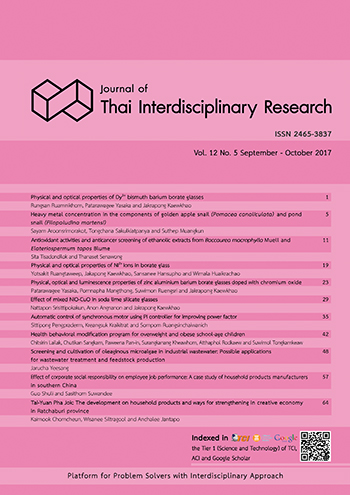Health behavioral modification program for overweight and obese school-age children
Main Article Content
Abstract
This quasi-experimental study aimed to determine the effectiveness of behavioral modification program among overweight and obese students, grades 4-6 elementary students at Saint Nicholas School, Phitsanulok, Thailand. A transtheoretical model of behavior change was applied. Sixty participants were recruited and divided into two groups; 30 in an experimental group and other 30 in a comparison group. The experimental group participated with health behavioral modification program for 12 weeks along with the 5 stages: pre-contemplation, contemplation, preparation, action, and maintenance. Data were collected through self-report questionnaires. The descriptive statistics, paired-sample t-test and independent-sample t-test were used to analyze data. The results revealed that the average score including self-care behavior, self-regulation and self-efficacy of the experimental group was significantly higher than the comparison group (p < 0.01). The findings of this study suggested that the behavioral modification program could improve health behaviors and decreased bodyweight among overweight and obese grades 4-6 elementary students.


